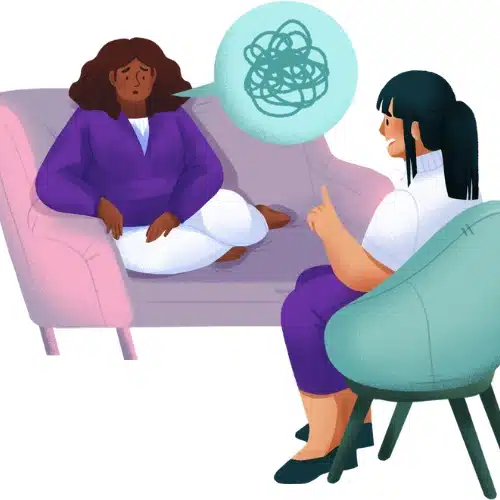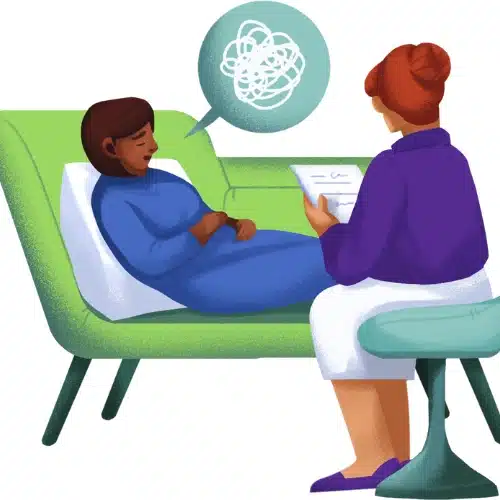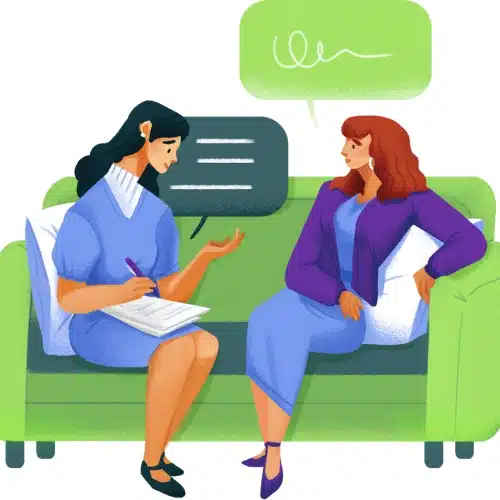Calm your mind, transform your sleep, awaken refreshed.
Hypnotherapy for Insomnia – Sleep therapy with Hypnotherapy and Rapid Transformational Therapy (RTT) offers a gentle, compassionate, and holistic way to restore restful sleep for adults, teenagers, and children. These personalised, non-invasive methods use guided relaxation, soothing suggestions, and subconscious work to calm the mind, ease anxiety, and break the cycle of insomnia.
By addressing the root causes of stress and unhelpful sleep patterns, this transformative approach promotes deep, natural rest. Each session is tailored to individual needs, helping clients create lasting positive changes that support calm evenings, peaceful nights, and a refreshed, energised start to each day.

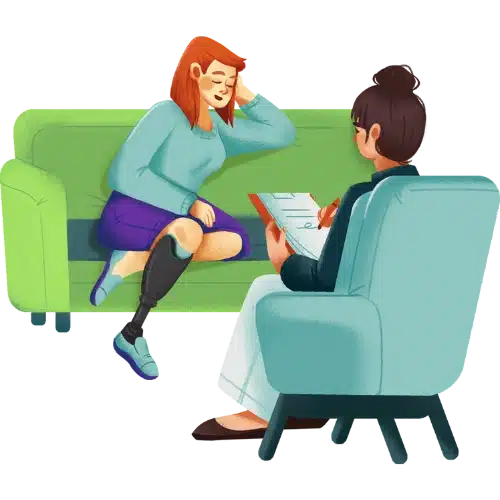

Ready to take the first step towards lasting change?
Contact us today to book your free discovery call or ask any questions, we’re here to help.
WHAT IS SLEEP HYPNOTHERAPY?
Sleep hypnotherapy is a gentle and effective method designed to help individuals overcome sleep difficulties such as insomnia, frequent waking, or anxiety-related restlessness. By guiding you into a deeply relaxed state, hypnotherapy works directly with the subconscious mind to release unhelpful thought patterns, reduce overactive thinking, and promote calm, restorative rest. At Hypnotherapist.es, we often integrate Rapid Transformational Therapy (RTT) to address the underlying emotional or psychological causes of poor sleep. This holistic approach is suitable for adults, teenagers, and children, offering a natural, non-invasive way to improve sleep quality and restore balance to both mind and body.
Key benefits include:
![]() Encourages deeper, more restorative sleep
Encourages deeper, more restorative sleep
![]() Helps to reduce stress and quiet the mind
Helps to reduce stress and quiet the mind
![]() Addresses emotional triggers affecting sleep
Addresses emotional triggers affecting sleep
![]() Suitable for all ages, including children
Suitable for all ages, including children
![]() Supports long-term, healthy sleep habits
Supports long-term, healthy sleep habits
BENEFITS OF HYPNOTHERAPY FOR SLEEPING ISSUES?
Hypnotherapy offers a natural, holistic, and highly effective way to improve sleep quality by addressing both the mind and body. Through guided relaxation and positive suggestion, it calms overactive thoughts, reduces stress, and creates the ideal mental state for falling asleep with ease. By working with the subconscious mind, hypnotherapy can also help to release deep-seated anxieties, reframe unhelpful beliefs, and establish healthy sleep patterns. This approach is suitable for adults, teenagers, and children, making it a versatile and non-invasive solution for a wide range of sleep difficulties. Over time, clients often experience lasting improvements in their ability to relax and rest.
Key benefits include:
![]() Promotes a calmer, more relaxed state before sleep
Promotes a calmer, more relaxed state before sleep
![]() Reduces anxiety and stress-related sleep issues
Reduces anxiety and stress-related sleep issues
![]() Encourages healthier, long-term sleep patterns
Encourages healthier, long-term sleep patterns
![]() Suitable for all age groups, including children
Suitable for all age groups, including children
![]() Addresses the root causes of insomnia and restless nights
Addresses the root causes of insomnia and restless nights
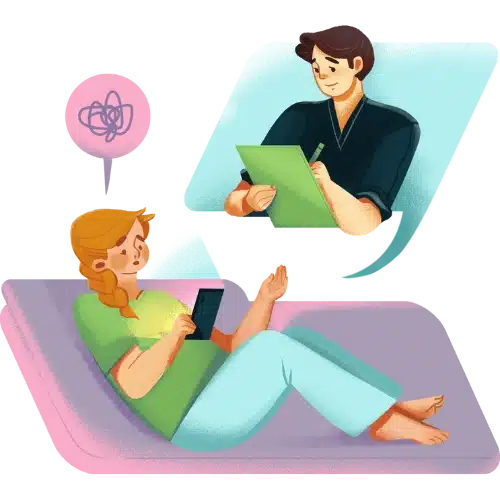

Looking for an Online Hypnotherapist?
Contact us today to book your free discovery call or ask any questions, we’re here to help.
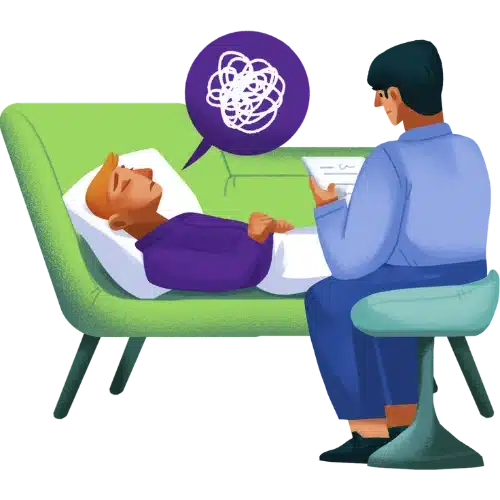
WHY CHOOSE SLEEP HYPNOTHERAPY?
Sleep hypnotherapy is a proven, natural, and non-invasive solution for those struggling with insomnia, restless nights, or difficulty switching off before bed. Unlike medication, which often only masks symptoms, hypnotherapy addresses the root causes of sleep problems by working with the subconscious mind. Through deep relaxation and positive suggestion, it helps reduce anxiety, quieten racing thoughts, and reframe unhelpful patterns that contribute to sleeplessness. Suitable for adults, teenagers, and children, this gentle approach not only improves sleep quality but also supports overall wellbeing, leaving you feeling more refreshed, energised, and balanced in your daily life.
Key reasons to choose sleep hypnotherapy:
![]() Highly effective in treating insomnia naturally
Highly effective in treating insomnia naturally
![]() Targets the underlying causes of poor sleep
Targets the underlying causes of poor sleep
![]() Reduces stress and promotes mental calmness
Reduces stress and promotes mental calmness
![]() Suitable for all ages, including children
Suitable for all ages, including children
![]() Encourages lasting, healthy sleep habits
Encourages lasting, healthy sleep habits
CAN HYPNOTHERAPY HELP WITH INSOMNIA?
Yes, hypnotherapy can be highly effective in helping people overcome insomnia by addressing both the symptoms and the underlying causes of sleeplessness. Through guided relaxation and carefully tailored suggestions, hypnotherapy works with the subconscious mind to reduce stress, calm overactive thoughts, and release unhelpful beliefs that may be disrupting rest. This natural, non-invasive approach is suitable for adults, teenagers, and children, and can help restore a healthy, consistent sleep routine. Many people find that, over time, hypnotherapy not only improves their sleep but also enhances their overall wellbeing and daily energy levels.
Key benefits for insomnia include:
![]() Encourages faster, easier sleep onset
Encourages faster, easier sleep onset
![]() Reduces night-time waking and restlessness
Reduces night-time waking and restlessness
![]() Calms anxiety and overthinking at bedtime
Calms anxiety and overthinking at bedtime
![]() Addresses the root causes of sleeplessness
Addresses the root causes of sleeplessness
![]() Supports long-term, natural sleep patterns
Supports long-term, natural sleep patterns

How it Works
We offer availability with highly experienced therapists suited to your needs and book the appointment.
Meet the practitioner and begin the road to self-improvement. Have any concerns? Let us know so we can assist.
Find a Therapist in Spain

HYPNOTHERAPY FOR INSOMNIA
Before getting in touch, please take a moment to review our Sleep Therapy FAQs.
You’ll find answers to common questions about how sleep therapy works, what to expect during sessions, the different approaches we use, and pricing information. This will help us respond more quickly and ensure you have all the essential details before beginning your journey towards calmer nights, deeper rest, and improved overall wellbeing. Thank you for your understanding.
What is the difference between trouble sleeping and chronic insomnia?
 Trouble sleeping can refer to occasional difficulties falling asleep, staying asleep, or waking too early. It may happen sporadically due to stress, changes in routine, or temporary lifestyle factors. Chronic insomnia, however, is a persistent condition where these sleep problems occur regularly, typically at least three times per week for three months or longer. Unlike occasional trouble sleeping, chronic insomnia can significantly impair daily functioning and wellbeing, often requiring targeted treatment. Understanding the difference helps to identify when sleep difficulties are part of a normal response to stress or when they signal a chronic sleep disorder needing professional attention.
Trouble sleeping can refer to occasional difficulties falling asleep, staying asleep, or waking too early. It may happen sporadically due to stress, changes in routine, or temporary lifestyle factors. Chronic insomnia, however, is a persistent condition where these sleep problems occur regularly, typically at least three times per week for three months or longer. Unlike occasional trouble sleeping, chronic insomnia can significantly impair daily functioning and wellbeing, often requiring targeted treatment. Understanding the difference helps to identify when sleep difficulties are part of a normal response to stress or when they signal a chronic sleep disorder needing professional attention.
![]() Trouble sleeping may be occasional and linked to temporary factors.
Trouble sleeping may be occasional and linked to temporary factors.
![]() Chronic insomnia involves frequent sleep disruptions over a prolonged period.
Chronic insomnia involves frequent sleep disruptions over a prolonged period.
![]() Chronic insomnia can affect mood, concentration, and physical health.
Chronic insomnia can affect mood, concentration, and physical health.
![]() Occasional trouble sleeping often resolves with lifestyle adjustments.
Occasional trouble sleeping often resolves with lifestyle adjustments.
![]() Professional diagnosis can distinguish between temporary and chronic sleep issues.
Professional diagnosis can distinguish between temporary and chronic sleep issues.
How does hypnotherapy help with general trouble sleeping caused by stress or anxiety?
 Hypnotherapy helps manage trouble sleeping by promoting a deep state of relaxation that calms both the mind and body. Stress and anxiety often create a cycle of racing thoughts and heightened arousal, which interfere with the ability to fall asleep or stay asleep. Through guided relaxation and positive suggestions, hypnotherapy can reduce this mental tension and ease worries related to sleep. It also assists in changing negative sleep associations and encourages healthier bedtime habits. By addressing the psychological factors contributing to sleep difficulties, hypnotherapy offers a holistic and non-invasive approach to improving overall sleep quality.
Hypnotherapy helps manage trouble sleeping by promoting a deep state of relaxation that calms both the mind and body. Stress and anxiety often create a cycle of racing thoughts and heightened arousal, which interfere with the ability to fall asleep or stay asleep. Through guided relaxation and positive suggestions, hypnotherapy can reduce this mental tension and ease worries related to sleep. It also assists in changing negative sleep associations and encourages healthier bedtime habits. By addressing the psychological factors contributing to sleep difficulties, hypnotherapy offers a holistic and non-invasive approach to improving overall sleep quality.
![]() Induces relaxation to reduce mental and physical tension.
Induces relaxation to reduce mental and physical tension.
![]() Helps break the cycle of anxious thoughts that disrupt sleep.
Helps break the cycle of anxious thoughts that disrupt sleep.
![]() Encourages positive attitudes and behaviours towards sleep.
Encourages positive attitudes and behaviours towards sleep.
![]() Supports development of consistent, calming bedtime routines.
Supports development of consistent, calming bedtime routines.
![]() Offers a drug-free method to improve sleep quality.
Offers a drug-free method to improve sleep quality.
What happens during a typical hypnotherapy session for trouble sleeping?
 In a typical hypnotherapy session for trouble sleeping, the practitioner guides you into a deeply relaxed, focused state often described as a trance. This state allows your subconscious mind to become more open to positive suggestions aimed at improving your sleep patterns. The session usually begins with relaxation techniques such as controlled breathing or muscle relaxation. The hypnotherapist then makes personalised suggestions to help ease anxiety, promote restful sleep, and establish healthy sleep behaviours. Finally, you are gently brought back to full awareness feeling calm and refreshed, sometimes with tools to practise self-hypnosis at home between sessions.
In a typical hypnotherapy session for trouble sleeping, the practitioner guides you into a deeply relaxed, focused state often described as a trance. This state allows your subconscious mind to become more open to positive suggestions aimed at improving your sleep patterns. The session usually begins with relaxation techniques such as controlled breathing or muscle relaxation. The hypnotherapist then makes personalised suggestions to help ease anxiety, promote restful sleep, and establish healthy sleep behaviours. Finally, you are gently brought back to full awareness feeling calm and refreshed, sometimes with tools to practise self-hypnosis at home between sessions.
![]() Guided relaxation to achieve a trance-like state.
Guided relaxation to achieve a trance-like state.
![]() Personalised suggestions focused on sleep improvement.
Personalised suggestions focused on sleep improvement.
![]() Techniques to reduce anxiety and promote calmness.
Techniques to reduce anxiety and promote calmness.
![]() Reinforcement of positive bedtime routines.
Reinforcement of positive bedtime routines.
![]() Support for self-hypnosis practice outside sessions.
Support for self-hypnosis practice outside sessions.
Can hypnotherapy assist with sleep difficulties related to menopause or hormonal changes?
 Hypnotherapy can be a helpful treatment for sleep difficulties caused by menopause or other hormonal changes. Hormonal fluctuations often lead to symptoms such as night sweats, mood swings, and increased anxiety, all of which can disrupt sleep. By fostering deep relaxation and targeting the subconscious mind, hypnotherapy can reduce the physical and emotional symptoms that contribute to poor sleep. It also encourages positive coping mechanisms and helps establish soothing bedtime rituals, providing a natural and medication-free way to manage sleep challenges during hormonal transitions.
Hypnotherapy can be a helpful treatment for sleep difficulties caused by menopause or other hormonal changes. Hormonal fluctuations often lead to symptoms such as night sweats, mood swings, and increased anxiety, all of which can disrupt sleep. By fostering deep relaxation and targeting the subconscious mind, hypnotherapy can reduce the physical and emotional symptoms that contribute to poor sleep. It also encourages positive coping mechanisms and helps establish soothing bedtime rituals, providing a natural and medication-free way to manage sleep challenges during hormonal transitions.
![]() Reduces physical symptoms like night sweats affecting sleep.
Reduces physical symptoms like night sweats affecting sleep.
![]() Calms anxiety and mood fluctuations linked to hormones.
Calms anxiety and mood fluctuations linked to hormones.
![]() Promotes relaxation to prepare the body for restful sleep.
Promotes relaxation to prepare the body for restful sleep.
![]() Supports development of comforting bedtime routines.
Supports development of comforting bedtime routines.
![]() Provides a non-pharmacological option for sleep support.
Provides a non-pharmacological option for sleep support.
What lifestyle changes can help improve general trouble sleeping?
 Making thoughtful lifestyle adjustments is often the first and most effective step towards improving trouble sleeping. Establishing a consistent sleep schedule—going to bed and waking at the same time every day—helps regulate your body’s internal clock. Creating a calm and comfortable sleep environment by keeping the bedroom cool, dark, and quiet can also promote restful sleep. Avoiding stimulants such as caffeine and nicotine, particularly in the hours before bedtime, is crucial. Additionally, limiting screen time in the evening and practising relaxation techniques like deep breathing or gentle yoga can prepare both mind and body for sleep.
Making thoughtful lifestyle adjustments is often the first and most effective step towards improving trouble sleeping. Establishing a consistent sleep schedule—going to bed and waking at the same time every day—helps regulate your body’s internal clock. Creating a calm and comfortable sleep environment by keeping the bedroom cool, dark, and quiet can also promote restful sleep. Avoiding stimulants such as caffeine and nicotine, particularly in the hours before bedtime, is crucial. Additionally, limiting screen time in the evening and practising relaxation techniques like deep breathing or gentle yoga can prepare both mind and body for sleep.
![]() Maintain a regular sleep and wake schedule daily.
Maintain a regular sleep and wake schedule daily.
![]() Keep the bedroom environment cool, dark, and quiet.
Keep the bedroom environment cool, dark, and quiet.
![]() Avoid caffeine, nicotine, and heavy meals close to bedtime.
Avoid caffeine, nicotine, and heavy meals close to bedtime.
![]() Reduce screen exposure at least an hour before sleep.
Reduce screen exposure at least an hour before sleep.
![]() Incorporate relaxation exercises to calm the mind.
Incorporate relaxation exercises to calm the mind.
When should someone seek professional help for trouble sleeping?
 If trouble sleeping persists beyond a few weeks and begins to impact daily functioning, it is advisable to seek professional help. Persistent sleep difficulties can affect concentration, mood, and physical health, increasing the risk of chronic conditions like heart disease and depression. Medical professionals can evaluate for underlying causes such as sleep disorders, mental health issues, or physical illnesses. They may recommend behavioural therapies, hypnotherapy, or, in some cases, medication. Early intervention not only improves sleep but also reduces the risk of long-term complications, making it important to consult a healthcare provider when sleep problems become frequent or severe.
If trouble sleeping persists beyond a few weeks and begins to impact daily functioning, it is advisable to seek professional help. Persistent sleep difficulties can affect concentration, mood, and physical health, increasing the risk of chronic conditions like heart disease and depression. Medical professionals can evaluate for underlying causes such as sleep disorders, mental health issues, or physical illnesses. They may recommend behavioural therapies, hypnotherapy, or, in some cases, medication. Early intervention not only improves sleep but also reduces the risk of long-term complications, making it important to consult a healthcare provider when sleep problems become frequent or severe.
![]() Persistent sleep issues lasting more than a few weeks warrant assessment.
Persistent sleep issues lasting more than a few weeks warrant assessment.
![]() Sleep difficulties impacting daily life should prompt professional advice.
Sleep difficulties impacting daily life should prompt professional advice.
![]() Doctors can identify underlying health or psychological causes.
Doctors can identify underlying health or psychological causes.
![]() Early treatment can prevent chronic health consequences.
Early treatment can prevent chronic health consequences.
![]() Treatment options include therapy, lifestyle changes, or medication.
Treatment options include therapy, lifestyle changes, or medication.
How can poor sleep hygiene contribute to trouble sleeping?
 Poor sleep hygiene refers to habits and environmental factors that negatively affect the ability to fall and stay asleep. Examples include inconsistent sleep schedules, exposure to bright screens before bedtime, consuming caffeine or heavy meals late in the day, and having an uncomfortable sleep environment. Such behaviours can disrupt your body’s natural circadian rhythm and increase alertness when you should be winding down. Improving sleep hygiene involves creating routines and surroundings that support healthy sleep cycles, such as avoiding electronics before bed, limiting caffeine intake, and ensuring the bedroom is quiet, cool, and dark. These changes can significantly reduce trouble sleeping over time.
Poor sleep hygiene refers to habits and environmental factors that negatively affect the ability to fall and stay asleep. Examples include inconsistent sleep schedules, exposure to bright screens before bedtime, consuming caffeine or heavy meals late in the day, and having an uncomfortable sleep environment. Such behaviours can disrupt your body’s natural circadian rhythm and increase alertness when you should be winding down. Improving sleep hygiene involves creating routines and surroundings that support healthy sleep cycles, such as avoiding electronics before bed, limiting caffeine intake, and ensuring the bedroom is quiet, cool, and dark. These changes can significantly reduce trouble sleeping over time.
![]() Irregular sleep times confuse the body’s internal clock.
Irregular sleep times confuse the body’s internal clock.
![]() Evening screen time suppresses melatonin, delaying sleepiness.
Evening screen time suppresses melatonin, delaying sleepiness.
![]() Caffeine and heavy meals close to bedtime stimulate alertness.
Caffeine and heavy meals close to bedtime stimulate alertness.
![]() An uncomfortable bedroom environment disrupts sleep quality.
An uncomfortable bedroom environment disrupts sleep quality.
![]() Consistent, healthy habits promote natural sleep rhythms.
Consistent, healthy habits promote natural sleep rhythms.
